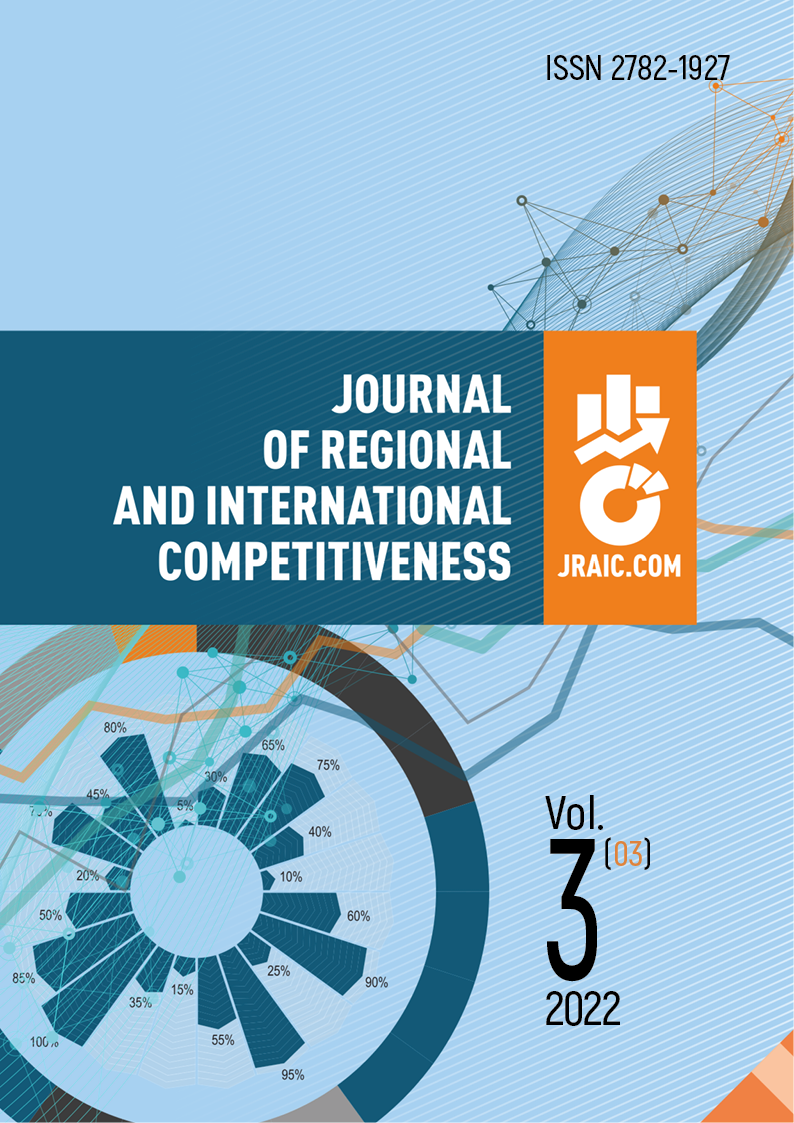Ярославль, Ярославская область, Россия
Ярославль, Ярославская область, Россия
Ярославль, Ярославская область, Россия
The paper considers the issues of statistical process management of an integrated management system of a refinery under the conditions of a new conceptual approach of integration of statistical and qualimetric methods. The authors pay special attention to the scientific and methodological justification of the management processes of an integrated management system in the context of sector specific features. The authors show, using as an example the construction of control charts of individual values and sliding differences in Statistica Trial 13.3 for the process "Manufacture of products", that the highest correlation is characteristic for such quality indicators as kinematic viscosity at 700C and fractional composition 50%. Therefore, the process "Manufacture of products" should be managed and brought into a statistically manageable state by changing the values of the quality indicators noted. In order to ensure the stability of the production process and to improve the overall functioning of the IMS, the parameters of the main processes should be monitored regularly. The results of this methodical approach to process management will allow the justified corrective action for the effective functioning of the integrated management system, as well as increase the competitiveness of the enterprise.
Statistical process control, integrated management system, quality control system.
1. Štofová, L., Szaryszová, P., & Vilámová, S. (2017). Development of the integrated quality management model for increasing the strategic performance of enterprises in the automotive industry. Problems and Perspectives in Management, 15(3), 4-15. DOI:https://doi.org/10.21511/ppm.15(3).2017.01.
2. Samoilenko, V. (2021). Management competitiveness of the enterprise in modern conditions. Intellect XXІ. DOI:https://doi.org/10.32782/2415-8801/2021-1.11.
3. Salimova, T.A. (2019). Formation of an integrated management system in the context of ensuring the sustainable development of the organization. Upravlenie kachestvom v obrazovanii i promyshlennosti. sbornik statej Vserossijskoj nauchno-tekhnicheskoj konferencii. Sevastopol’, 16–17 maya 2019 goda. (pp. 158-162) Sevastopol’: Izd-vo FGAOU VO «Sevastopol’skij gosudarstvennyj universitet» (in Russian).
4. Salimova, T. A., & Biryukova, L. I. (2020). On the question of the content of the concept of “sustainable competitiveness”. Nauka i biznes: puti razvitiya, (5), 148-151 (in Russian).
5. Lahuta, P., Kardoš, P., & Hudáková, M. (2021). Integrated Risk Management System in Transport. 4th International scientific conference on sustainable, modern and safe transport. Transportation Research Procedia, 55, 1530–1537. Retrieved from: https://doi.org/10.1016/j.trpro.2021.07.142.
6. Suarez-Paba, M. C., & Cruz, A. M. (2022). A paradigm shift in Natech risk management: Development of a rating system framework for evaluating the performance of industry. Journal of Loss Prevention in the Process Industries, 74, 104615. Retrieved from: https://doi.org/10.1016/j.jlp.2021.104615
7. Shtovba S.D. (2020). Introduction to fuzzy set theory and fuzzy logic [in Russian], http://matlab. exponenta.ru/fuzzylogic/book1/index.php (accessed: 30.07.2020).
8. Tsareva, S. A., & Yuzhakova, Yu. O. (2018). Performance assessment of the integrated management system at NPP “Burservis” Upravlenie kachestvom v obrazovanii i promyshlennosti. sbornik statej Vserossijskoj nauchno-tekhnicheskoj konferencii. Sevastopol’, 17–18 maya 2018 goda. (pp. 140-146). Sevastopol’: Izd-vo FGAOU VO «Sevastopol’skij gosudarstvennyj universitet» (in Russian).
9. Terano, T., Asai, K., & Sugeno, M. (1989). Applied fuzzy systems. Academic Press. Retrieved from: https://doi.org/10.1016/B978-0-12-685242-4.50002-6
10. Bykov, Yu. M., Skhirtladze, A. G., Bykov, S. Yu., & Skhirtladze, S. A. (2011). Analiz tochnosti i stabil’nosti processov: uchebnoe posobie. Staryj Oskol: TNT (in Russian).
11. Vetter, T. R. & Morrice, D. (2019). Statistical Process Control: No Hits, No Runs, No Errors? Anesthesia & Analgesia, 128(2), 374-382. DOI:https://doi.org/10.1213/ANE.0000000000003977.
12. HOST R ISO 7870-1-2011. (2012). Statistical methods. Control cards. Part 1. General principles. M.: Standartinform (in Russian).
13. HOST R ISO 7870-2-2015. (2016). Statistical methods. Control cards. Part 2. Shuhart control cards. M.: Standartinform (in Russian).
14. HOST R ISO 22514-1-2015. (2016). Statistical methods. Process management. Part 1. General principles. M.: Standartinform (in Russian).
15. HOST R ISO 22514-2-2015. (2016). Statistical methods. Process management. Part 2. Assessment of the suitability and reproducibility of the process based on the model of its change over time. M.: Standartinform (in Russian).
16. HOST R ISO 9001-2015 (ISO 9001:2015). (2015). Quality management systems. Requirements. M.: Standartinform (in Russian).
17. HOST R ISO 14001-2016. (2016). Environmental management systems. Requirements and application guidelines. M.: Standartinform (in Russian).
18. HOST R ISO 45001-2020 (2020). Occupational safety and health management systems. Requirements and application guidelines. M.: Standartinform (in Russian).
19. HOST R ISO 11462-2-2012 (2014). Statistical methods. Guidelines for the implementation of statistical process management. Part 2. Methods and techniques. M.: Standartinform (in Russian).
20. Rylov, M. A. (2015). Information system for product quality control at the gasoline catalytic reforming plant. Candidate's thesis. Moscow (in Russian).




















